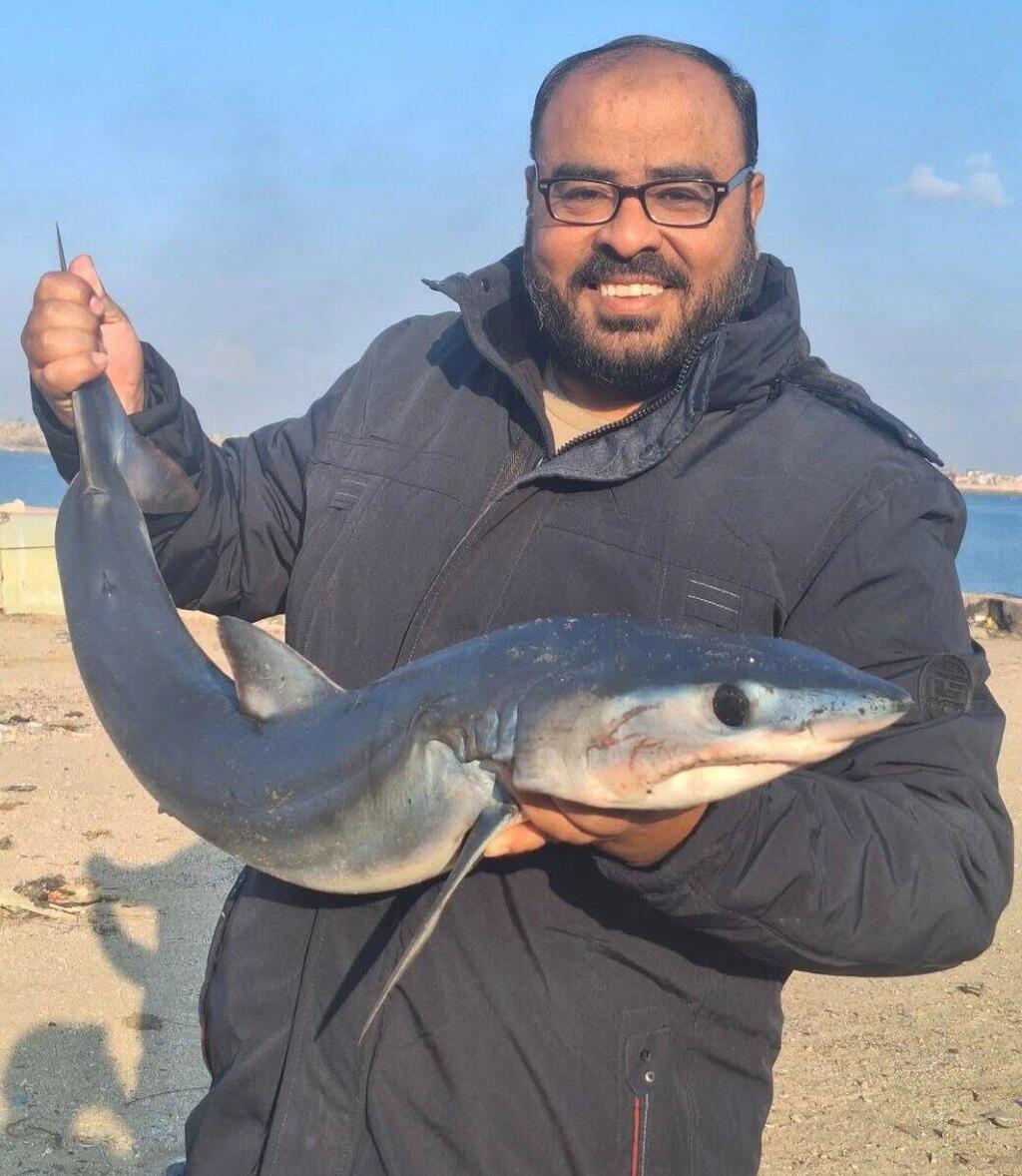Getting your Trinity Audio player ready...
Mahmoud Zaki Al-Moudi, a prominent Hamas activist from Gaza with 381,000 Instagram followers, stirred controversy on Sunday after posting a photo of himself holding a small shark, likely a juvenile shortfin mako. The post quickly gained traction, receiving 22,000 likes.
Al-Moudi later shared another image of himself standing next to a pot containing a stew, claiming he had cooked the shark. “Gaza’s fishermen leave no fish untouched,” he captioned. While he received several recipes for cooking shark meat, Al-Moudi noted his personal preference for sardines.
It is illegal to hunt or consume sharks in Israel, as they are a protected species. Conservationists emphasize the importance of preserving marine biodiversity, particularly endangered species.
Sharks in Israel, a nonprofit that monitors shark populations across the Mediterranean, has been documenting shark fishing in Gaza for the past four years. According to Sharks in Israel member Ra’am Nery, 1,556 sharks of eight different species have been caught in Gaza between 2020 and 2023. Alarmingly, nearly a third of these are classified as endangered.
<< Get the Ynetnews app on your smartphone: Google Play: https://bit.ly/4eJ37pE | Apple App Store: https://bit.ly/3ZL7iNv >>
Nery’s team has also documented, often via social media, the incidental capture of other marine animals in Gaza. These include four sea turtles and eight dolphins over the past three years. Most of these animals were found dead or were returned to the sea with severe injuries.
Earlier on Sunday, a striped dolphin was seen in the possession of a Khan Younis resident. Social media posts showed the dolphin, which later became part of the man’s family dinner. Some online users defended the practice, saying: “In Gaza, everything is allowed. Animal rights have no place in the circumstances they endure.”
Given restrictions on Gaza’s fishermen due to ongoing war, it is likely the dolphin had washed ashore after dying from illness. The Israel Nature and Parks Authority noted that striped dolphins are typically deep-water species and are rarely found near the coast.




